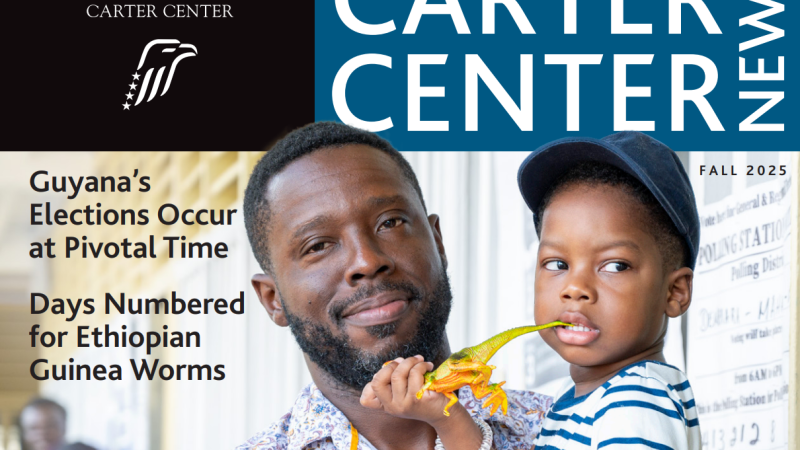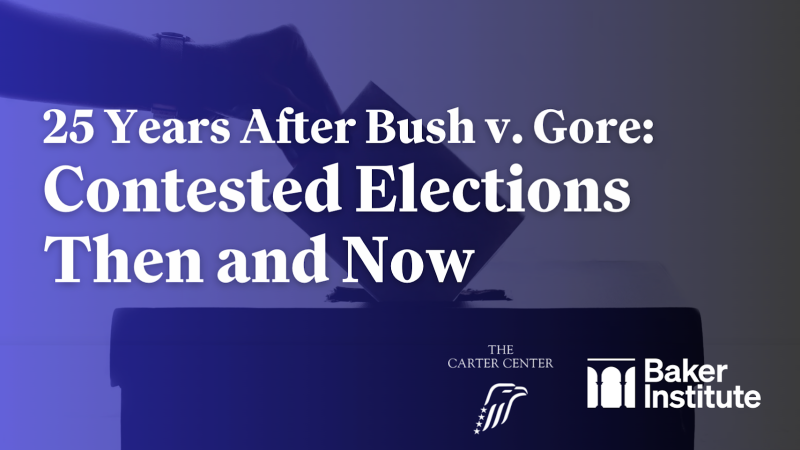News
We invite you to browse our latest news. Some external links below may require a subscription.
Popular in Your Area
A Year After President Carter’s Passing, The Carter Center Continues to Advance His Vision of Peace, Health, and Human Rights

The Carter Center Reaffirms Commitment to the Declaration of Principles for International Election Observation
Congress, you have a chance to implement Trump Gaza plan right
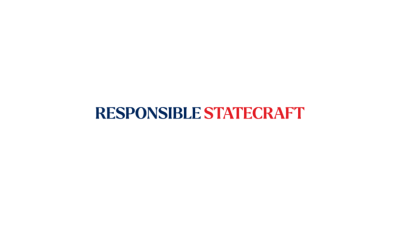
Sudan Is a Good Place to Wage Peace
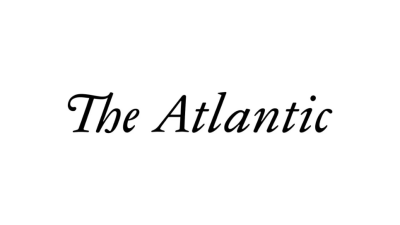
Carter Center News Fall 2025
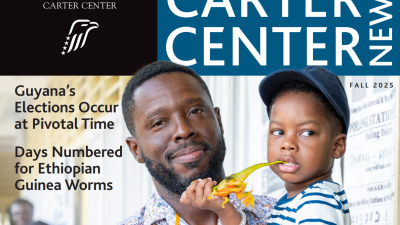
Apply Today: Women’s Resilience in Environmental Stewardship and Empowerment (SheRise) Subawards – Zambia (RFA)
Rice University’s Baker Institute and The Carter Center to Host Annual Elections Conference in Houston

Survey: Chinese Public Divided About Seeking Global Dominance
Jason Carter interview on CNN’s ‘Erin Burnett OutFront’

The Carter Center Urges Guyana’s Political Parties to Submit Campaign Finance Reports
1 of 106
Global Impact Starts with You
Your support sustains the Carter Center's mission of waging peace, fighting disease, and building hope around the world.



